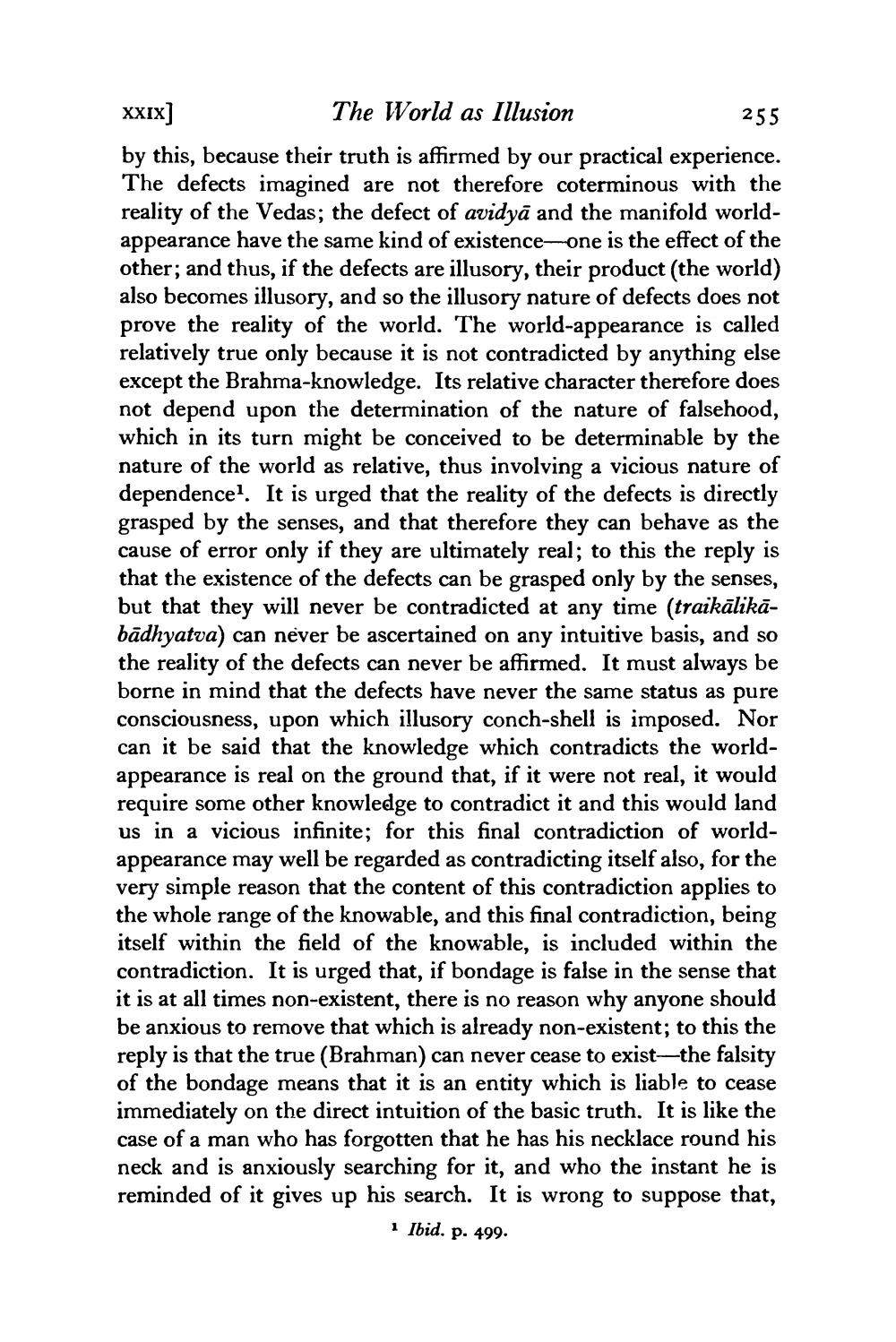________________
xxıx] The World as Illusion
255 by this, because their truth is affirmed by our practical experience.
The defects imagined are not therefore coterminous with the reality of the Vedas; the defect of avidya and the manifold worldappearance have the same kind of existence-one is the effect of the other; and thus, if the defects are illusory, their product (the world) also becomes illusory, and so the illusory nature of defects does not prove the reality of the world. The world-appearance is called relatively true only because it is not contradicted by anything else except the Brahma-knowledge. Its relative character therefore does not depend upon the determination of the nature of falsehood, which in its turn might be conceived to be determinable by the nature of the world as relative, thus involving a vicious nature of dependencel. It is urged that the reality of the defects is directly grasped by the senses, and that therefore they can behave as the cause of error only if they are ultimately real; to this the reply is that the existence of the defects can be grasped only by the senses, but that they will never be contradicted at any time (traikālikābādhyatva) can never be ascertained on any intuitive basis, and so the reality of the defects can never be affirmed. It must always be borne in mind that the defects have never the same status as pure consciousness, upon which illusory conch-shell is imposed. Nor can it be said that the knowledge which contradicts the worldappearance is real on the ground that, if it were not real, it would require some other knowledge to contradict it and this would land us in a vicious infinite; for this final contradiction of worldappearance may well be regarded as contradicting itself also, for the very simple reason that the content of this contradiction applies to the whole range of the knowable, and this final contradiction, being itself within the field of the knowable, is included within the contradiction. It is urged that, if bondage is false in the sense that
s at all times non-existent, there is no reason why anyone should be anxious to remove that which is already non-existent; to this the reply is that the true (Brahman) can never cease to exist—the falsity of the bondage means that it is an entity which is liable to cease immediately on the direct intuition of the basic truth. It is like the case of a man who has forgotten that he has his necklace round his neck and is anxiously searching for it, and who the instant he is reminded of it gives up his search. It is wrong to suppose that,
1 Ibid. p. 499.




